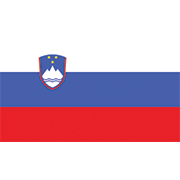Fiscal subject related
Starting January 1, 2025, the Slovenian Tax Administration has clarified the VAT rates applicable to beverages and beverage preparations. Certain products will no longer qualify for the reduced VAT rate and will instead be taxed at the standard rate of 22%. This includes:
- Sugar Syrups: Syrups and beverage preparations that contain sugar or sweeteners,
- Sweetened Beverages: All beverages that have added sugar or sweeteners.
However, several items will continue to benefit from the reduced VAT rate, including:
- Various foodstuffs (tariff codes 2101 to 2106 inclusive),
- Fruit juice (tariff code 2009),
- Waters, including mineral waters and sodas without added sugar (tariff code 2201),
- Other non-alcoholic beverages that do not contain sugar or sweeteners (tariff code 2202).
- Liquid food for patients and dietary supplements (tariff code 2202 99),
- Vinegar and vinegar substitutes (tariff code 2209 00).
This adjustment in VAT rates reflects Slovenia's ongoing efforts to regulate consumption patterns and align with public health objectives.
Other news from Slovenia
New document was uploaded: EV-chargers from the Fiscalization Perspective in Slovenia
 Slovenia
Author: Vukašin Santo
Slovenia
Author: Vukašin Santo
The purpose of this document is to provide an overview of the fiscalization of electric vehicle chargers in Slovenia, with a particular focus on public chargers. Read more
Subscribe to get access to the latest news, documents, webinars and educations.
Already subscriber? Login


The Tax Authority in Slovenia Published a Reminder on Changing the Digital Certificate for Signing Responses in Fiscalization
 Slovenia
Author: Tara Nedeljković
Slovenia
Author: Tara Nedeljković
On 15 September 2025, Slovenia’s Tax Authority (FURS) will replace the digital certificate (DavPotRac) used for signing fiscal verification responses in the production tax cash register system between 22:00 and 24:00. A temporary parallel production environment with the new certificate is available until 1 October 2025 for testing, and businesses are advised to ensure their invoice validation soft... Read more



Clarifications on Vending Machine Sales and Fiscal Requirements in Slovenia
 Slovenia
Author: Vukašin Santo
Slovenia
Author: Vukašin Santo
In Slovenia, vending machine sales of goods are exempt from issuing fiscal receipts but require monthly stock reporting, while service sales (e.g., parking) must issue receipts and submit them to the Tax Authority within ten days. Read more
Subscribe to get access to the latest news, documents, webinars and educations.
Already subscriber? Login


Slovenian Tax Authority Announces New VAT-O Submission Features on eDavki from August 1, 2025
 Slovenia
Author: Ivana Picajkić
Slovenia
Author: Ivana Picajkić
Starting August 1, 2025, Slovenian taxpayers can submit VAT records through the eDavki portal or MiniBlagajn app, enabling automatic generation of VAT-O returns up to three times daily. Pre-filled VAT-O returns will be provided for July 2025 if records are submitted by August 14 (for intra-EU transactions) or August 26 (for others), with support available for missing returns. Starting August 1, 20... Read more



Slovenian Tax Authority Updated FAQs on VAT Recordkeeping and Reporting Requirements
 Slovenia
Author: Ivana Picajkić
Slovenia
Author: Ivana Picajkić
On July 23, 2025, Slovenia’s Financial Administration (FURS) published updated VAT FAQs clarifying key compliance issues such as invoice corrections, reporting obligations, and recordkeeping formats. Key updates include procedures for correcting invoices with incorrect VAT rates, exclusion of nontaxable domestic supplies from VAT records, and new rules for reporting invoices issued to certain non-taxable legal entities. Read more
Subscribe to get access to the latest news, documents, webinars and educations.
Already subscriber? Login


Slovenia: New Version of miniBlagajna Mobile App Released
 Slovenia
Author: Ivana Picajkić
Slovenia
Author: Ivana Picajkić
Slovenia’s Financial Administration has released version 2.7 of the miniBlagajna mobile app to fix a crash issue related to landscape mode, urging users to update for stable performance. Read more
Subscribe to get access to the latest news, documents, webinars and educations.
Already subscriber? Login


Reminder: Slovenia’s e-Invoicing Law Updates
 Slovenia
Author: Ivana Picajkić
Slovenia
Author: Ivana Picajkić
Slovenia’s updated e-invoicing law postpones the mandatory B2B implementation to January 1, 2027, removes the previous 8-day reporting requirement to FURS, and introduces stricter standards for service providers, including mandatory ISO/IEC 27001 certification. The draft also officially permits Peppol use, defines accepted formats, and outlines fines for non-compliance, while B2C invoicing remains... Read more


